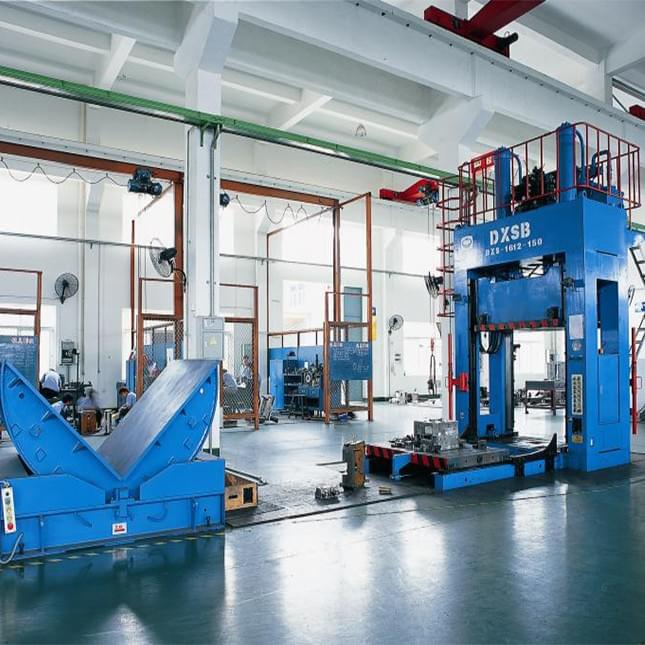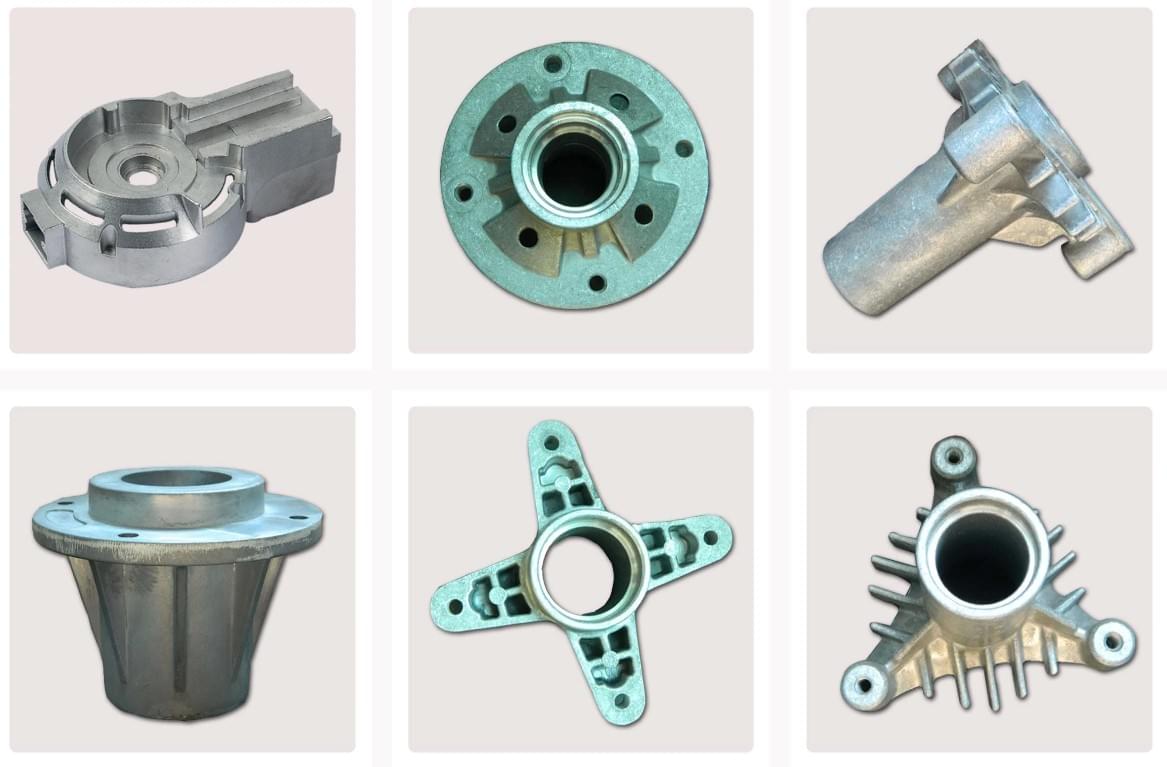Introduction

Understanding the difference between cast aluminum and regular aluminum is crucial in metal casting. Metal casting involves pouring molten metal into a mold to create a desired shape, and aluminum is a popular choice due to its lightweight and durable properties. In this article, we'll explore the advantages of using aluminum in metal casting and delve into the distinctions between cast aluminum and regular aluminum.
Understanding the Difference
Cast aluminum vs aluminum: what's the distinction? While both are made from the same material, cast aluminum undergoes a specific casting process that gives it unique properties suitable for various applications. Understanding these differences is essential for making informed decisions when choosing the right material for specific projects.
Cast aluminum is created by pouring molten aluminum into a mold to achieve the desired shape. This process allows for intricate designs and shapes that are impossible with regular aluminum. Additionally, cast aluminum tends to be more durable and corrosion-resistant, making it ideal for outdoor furniture, automotive parts, and other applications where strength and longevity are crucial. Understanding these distinctions can help select the right material for a specific project.
Exploring Metal Casting
Metal casting is a versatile manufacturing process that involves shaping molten metal into intricate designs through various methods such as die casting, sand casting, and investment casting. Each method offers distinct advantages and considerations based on cost, complexity, and production volume. One of the key advantages of metal casting, particularly with aluminum, is its lightweight properties. This makes it an ideal choice for industries such as aerospace and automotive, where weight reduction is a critical factor in improving fuel efficiency and overall performance.
The Advantages of Aluminum
Aluminum is a versatile metal with numerous properties that make it ideal for casting. Its lightweight, corrosion-resistant, and conductive characteristics and exceptional strength-to-weight ratio position it as a prime choice for various industries.
Specifically, aluminum offers the following advantages:
- Lightweight: Reduces overall product weight, leading to improved fuel efficiency and handling.
- Corrosion Resistant: Ensures long-lasting performance in harsh environments without compromising structural integrity.
- High Thermal Conductivity: Facilitates efficient heat transfer, making it suitable for applications requiring heat dissipation.
- Excellent Strength-to-Weight Ratio: Provides durability and reliability without sacrificing weight.
These attributes, combined with aluminum’s recyclability and abundance, make it a sustainable and economically viable material for various applications.
Cast Aluminum vs Aluminum: What's the Distinction?

Properties and Characteristics
When comparing cast aluminum vs aluminum, it's important to note that cast aluminum refers to pouring molten aluminum into a mold to create a specific shape. In contrast, aluminum typically refers to the raw material itself. Cast aluminum is known for its excellent dimensional stability, high strength-to-weight ratio, and corrosion resistance, making it ideal for various applications.
Applications in Different Industries
The distinction between cast aluminum and aluminum is crucial when considering their applications in different industries. Cast aluminum is commonly used in automotive parts, outdoor furniture, and various consumer goods due to its ability to be molded into complex shapes with tight tolerances. On the other hand, raw aluminum is often utilized in aerospace components, construction materials, and electrical conductors for its lightweight and durable properties.
Pros and Cons Comparison
When comparing the pros and cons of cast aluminum vs raw aluminum, it's evident that cast aluminum offers superior design flexibility and cost-effectiveness in mass production due to its moldability. However, raw aluminum provides higher tensile strength and better thermal conductivity for certain specialized applications. Understanding these distinctions is crucial for making informed decisions and selecting the most suitable material for specific manufacturing needs.
The Process of Metal Casting

Metal casting is a versatile manufacturing process that involves pouring molten metal into a mold and allowing it to solidify. This process creates many products, from small components to large machinery parts. One popular method of metal casting is die casting, which uses a steel mold to produce high-quality, precise parts with excellent surface finishes.
Die Casting vs Other Casting Methods
Die casting stands out among other casting methods due to its ability to produce complex shapes with high dimensional accuracy and smooth surface finish. This makes it an ideal choice for manufacturing components where tight tolerances are crucial, such as in the automotive and aerospace industries. Die casting offers faster production rates and reduced material waste than other methods like sand casting or investment casting.
Furthermore, die casting offers excellent repeatability and consistency in part production, ensuring that each component meets the required specifications. This level of precision is essential in industries where safety and performance are paramount, such as manufacturing critical automotive and aerospace parts. Additionally, die casting allows for incorporating intricate details and features into the final product, providing designers greater flexibility in creating innovative designs that push the boundaries of what is possible.
The Role of Ningbo Buttler Precision Machinery Co., Ltd.
Ningbo Buttler Precision Machinery Co., Ltd. is a leading force in the metal casting industry. The company excels in a comprehensive range of services, from die-casting mold creation to aluminum and zinc castings' final assembly and packaging.
Ningbo Buttler offers a unique value proposition through:
- Expertise in tooling design: Creating efficient and cost-effective molds for high-quality castings.
- Masterful casting capabilities: Producing precision aluminum and zinc castings to meet diverse industry needs.
- Comprehensive post-casting services: Offering processing, surface treatment, assembly, and packaging solutions.
- Innovative part engineering: Optimizing part designs for enhanced functionality and performance.
Combining these strengths, Ningbo Buttler delivers superior products and solutions to various industries.
Smart Part Engineering for Better Part Designs
Smart part engineering is essential for achieving better part designs in metal casting processes. Ningbo Buttler Precision Machinery Co., Ltd. offers innovative tooling designs engineered for cost-effective manufacturing to maximize performance and casting quality while minimizing the need for secondary operations. Their Engineering Design Review Process optimizes new and existing parts at no cost to the client.
Furthermore, Ningbo Buttler Precision Machinery Co., Ltd. utilizes advanced simulation software to analyze and optimize part designs before production begins. This proactive approach helps to identify potential issues and make necessary adjustments, ultimately saving time and reducing costly rework. By integrating smart part engineering into the design process, they can deliver high-quality parts that meet or exceed customer expectations.
Aluminum Metal Casting: A Closer Look

Aluminum metal casting involves die-casting molds, essential for creating intricate and precise aluminum parts. The importance of these molds cannot be overstated, as they determine the final quality and accuracy of the cast aluminum products. Ningbo Buttler Precision Machinery Co., Ltd. specializes in providing high-quality die-casting molds for aluminum and zinc castings, ensuring superior results for its clients.
Die Casting Mold and Its Importance
Die-casting molds are essential tools for producing high-quality aluminum castings. They enable the creation of intricate designs with precise details. Ningbo Buttler Precision Machinery Co., Ltd. excels in crafting these molds to exacting standards.
Our expertise encompasses:
- Precision mold design and manufacturing: We create molds consistently, delivering top-tier castings.
- Advanced surface treatments: Our range of finishing options enhances aesthetics and durability.
- Expert assembly: We ensure all components fit perfectly to meet client specifications.
By combining these strengths, we deliver complete die-casting solutions that exceed expectations.
Surface Treatment and Assembly
After the aluminum parts are cast, surface treatment and assembly play a vital role in enhancing their durability and functionality. Ningbo Buttler Precision Machinery Co., Ltd. excels in providing comprehensive surface treatment options to protect the cast aluminum parts from corrosion, wear, and other environmental factors. Their expertise extends to efficient assembly processes, ensuring seamless integration of various components for optimal performance.
In addition to providing surface treatment options, Ningbo Buttler Precision Machinery Co., Ltd. also focuses on the aesthetic aspect of the aluminum parts. By offering a range of finishing techniques, such as anodizing, powder coating, and polishing, they ensure that the parts perform well and look visually appealing. This attention to detail adds value to the final product and enhances its quality.
Quality and Performance Maximization
The ultimate goal of aluminum metal casting is to maximize the quality and performance of the finished products. With die-cast metal capabilities, including aluminum and zinc castings, Ningbo Buttler Precision Machinery Co., Ltd. focuses on delivering superior quality while optimizing performance characteristics such as strength, durability, and dimensional accuracy. Their commitment to excellence sets them apart as leaders in the industry.
Ningbo Buttler Precision Machinery Co., Ltd. also recognizes the versatility of aluminum metal in various industries, from automotive and aerospace to consumer goods and electronics. Aluminum's lightweight yet durable nature makes it ideal for a wide range of applications, allowing for innovative designs and efficient production processes. By leveraging its expertise in aluminum metal casting, Ningbo Buttler Precision Machinery Co., Ltd. can meet the diverse needs of its clients across different sectors, contributing to the advancement of technology and product development.
Exploring the Uses of Aluminum Metal

Aluminum is widely utilized in various industries due to its exceptional properties and characteristics. From outdoor lamp series to automotive parts, gas appliance parts, power tool parts, and appliance parts, the versatility of cast aluminum vs aluminum makes it a popular choice for manufacturers.
Outdoor Lamp Series
The use of aluminum metal in outdoor lamp series is advantageous due to its lightweight nature and resistance to corrosion. The durability of cast aluminum vs aluminum ensures that these outdoor lamps can withstand harsh weather conditions while maintaining their aesthetic appeal.
Automotive Parts
In the automotive industry, aluminum metal casting is crucial in producing engine components, transmission housings, and structural parts. Cast aluminum's lightweight nature compared to aluminum contributes to improved fuel efficiency and overall vehicle performance.
Gas Appliance Parts
Aluminum metal casting benefits gas appliance parts, providing excellent thermal conductivity and heat resistance. This makes it ideal for applications such as burner heads, valves, and other components used in gas appliances.
Power Tool Parts
Aluminum metal is also widely used in manufacturing power tool parts due to its strength-to-weight ratio and ability to withstand heavy-duty usage. Die-cast metal ensures that power tools are durable and reliable for various construction and DIY projects.
Appliance Parts
From kitchen appliances to HVAC systems, cast aluminum's versatility vs. aluminum makes it suitable for a wide range of appliance parts. Its corrosion resistance and ability to be formed into intricate shapes make it an ideal material choice for these applications.
Conclusion

When choosing between cast aluminum and aluminum, it's crucial to make informed decisions based on each material's specific properties and characteristics. Understanding the differences can help select the right material for various applications, whether in automotive parts, gas appliance parts, power tool parts, or appliance parts. By exploring the uses of aluminum metal in different industries, it becomes clear that there is a growing demand for its versatility and durability.
The future of metal and aluminum looks promising as advancements in smart part engineering continue to revolutionize part designs for better performance and quality. Companies like Ningbo Buttler Precision Machinery Co., Ltd. specialize in die-casting molds and aluminum and zinc castings. They also focus on processing, surface treatment, assembly, and packaging to meet the evolving needs of various industries. As technology continues to evolve, so does the potential for new applications of die-cast metal.
Choosing the right casting method is essential for maximizing performance while minimizing costs. Die casting offers numerous advantages over other methods, such as iron casting. With innovative tooling designs engineered for cost-effective manufacturing from Ningbo Buttler Precision Machinery Co., Ltd., companies can optimize their new and existing parts without incurring additional costs. It's important to consider all factors when deciding on the best casting method for specific applications.

